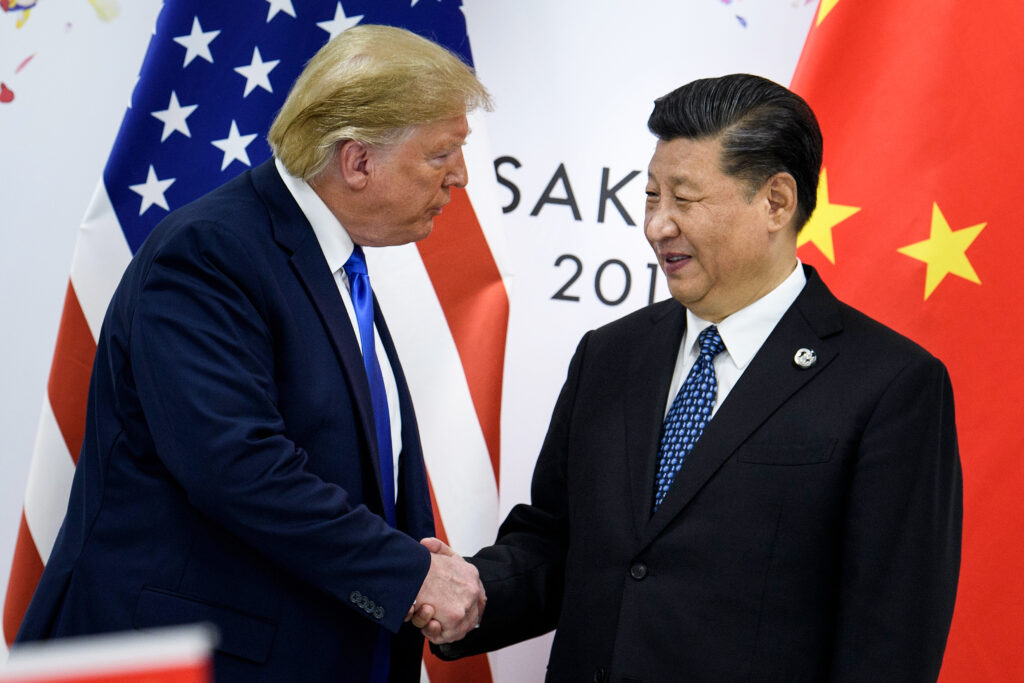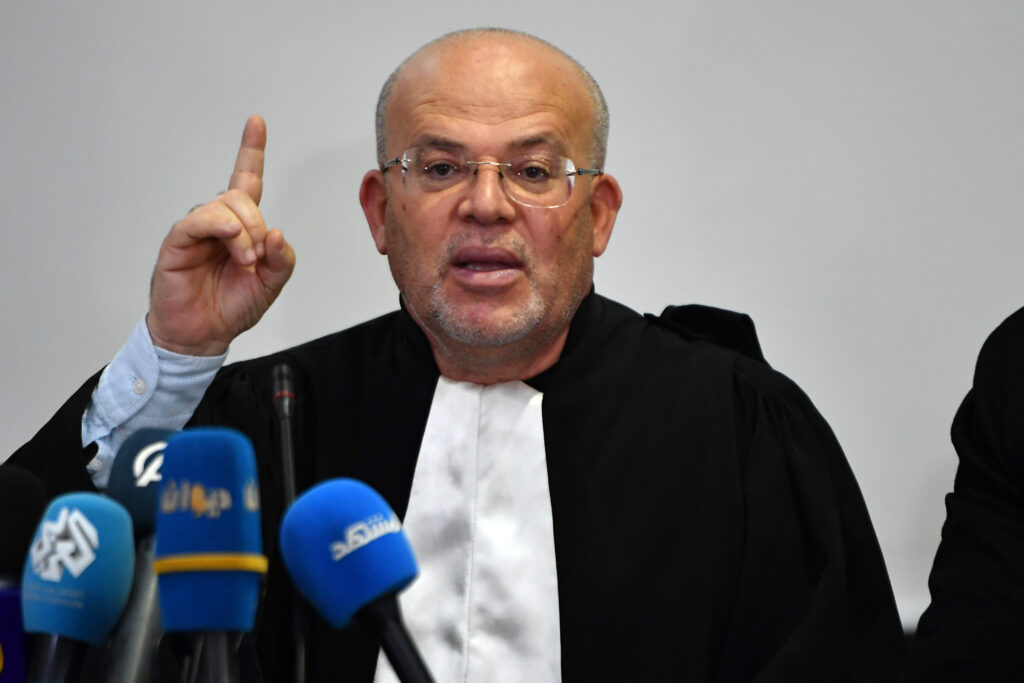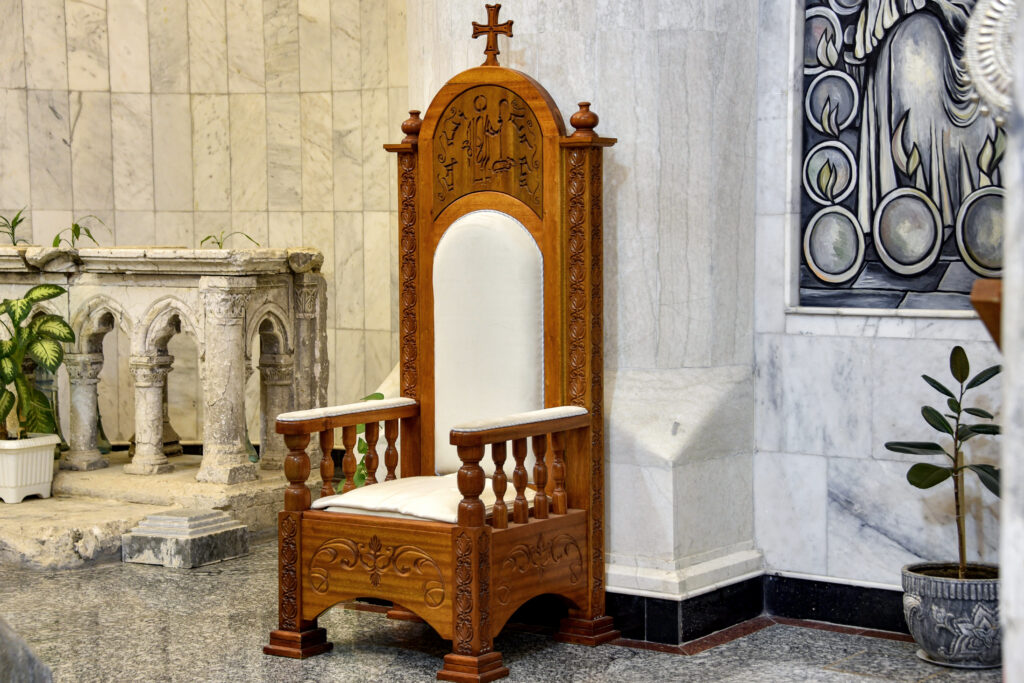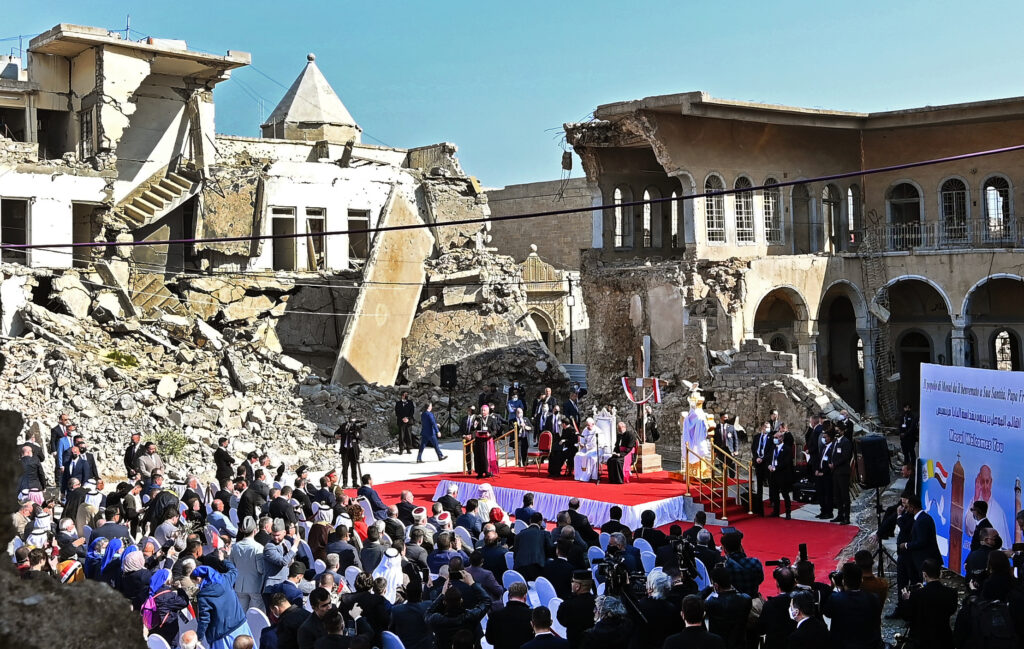Church bells tolled in Mosul and nearby towns Monday to mark the death of Pope Francis, the first pope to visit Iraq which suffered greatly at the hands of jihadists.In the historic Al-Tahera church in the nearby town of Qaraqosh, where the Pope prayed in 2021, dozens of worshippers gathered for an Easter mass which also became an occasion to pay tribute to their beloved Francis.Near the altar stood an empty wooden chair on which the pope had sat when he declared in a mass that he had entrusted the town’s “rebirth” to the Virgin Mary.His death “is a significant setback for Christians, especially in the Middle East”, said Kadun Yuhana as he mourned a pope who had kept “a watchful eye on the region, much like a father to his children”.Yuhana, in his sixties, recalled with “profound love” the pope’s historic visit to Qaraqosh, where the jihadists had ransacked and burned churches and smashed crosses.”We were very happy that he visited his children in this small village, whose population has dwindled due to the emigration of thousands because of the injustice.”In 2014, the Islamic State group swept through Iraq’s Nineveh plains, home to one of the oldest Christian communities in the world.Within days, nearly all of Qaraqosh’s 55,000 Christian residents had fled.Boutros Mazen, a medical assistant, praised the “fraternity and love” fostered by Pope Francis during his visit to Iraq.”He left something good to the Iraqi people: their cohesion and unity,” he said.By the time of Francis’s visit, Iraq’s Christian population had shrunk during years of violence in the country to fewer than 400,000 — from around 1.5 million before the US-led invasion of 2003.During his visit, the late pope met Grand Ayatollah Ali Sistani, Shiite Islam’s highest authority in Iraq.It was a landmark moment in modern religious history, and for Francis’s efforts to deepen interfaith dialogue.In Mosul, he prayed for the victims of war and pleaded for Christians in Iraq and the Middle East to stay in their homelands.Sanaa Abdul Karim, who had fled the jihadists’ rule in Mosul to the northern city of Dohuk, described the pope’s death as a “tragedy”, praising his “humility” when he visited her hometown.It is an “extraordinary loss… we are deeply moved by it, particularly because he supported the return of Christians to Iraq,” she said.burs-cbg/rh/srm







